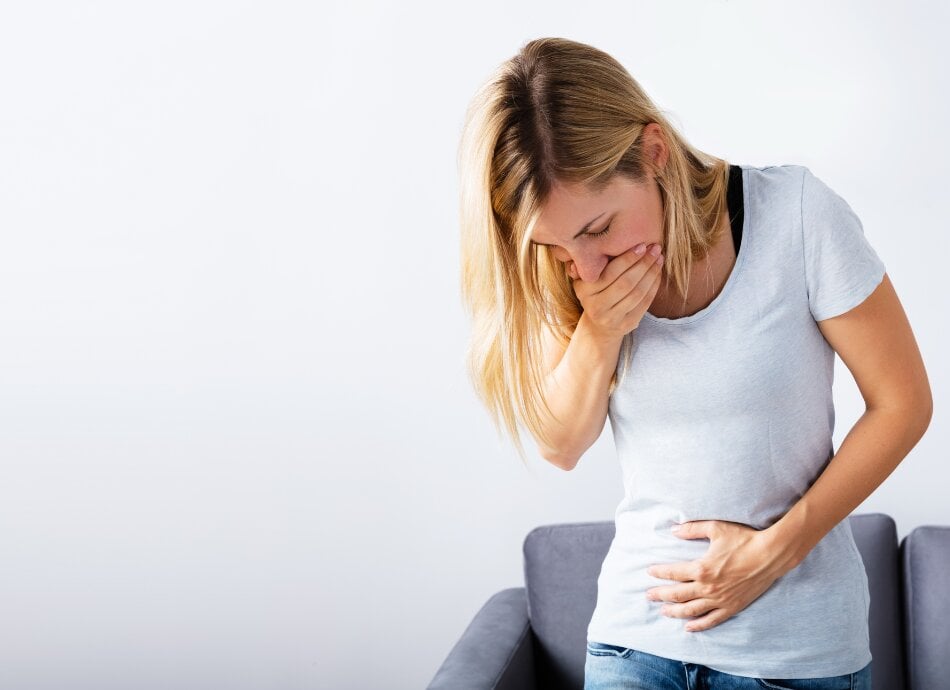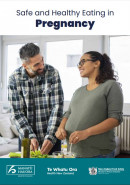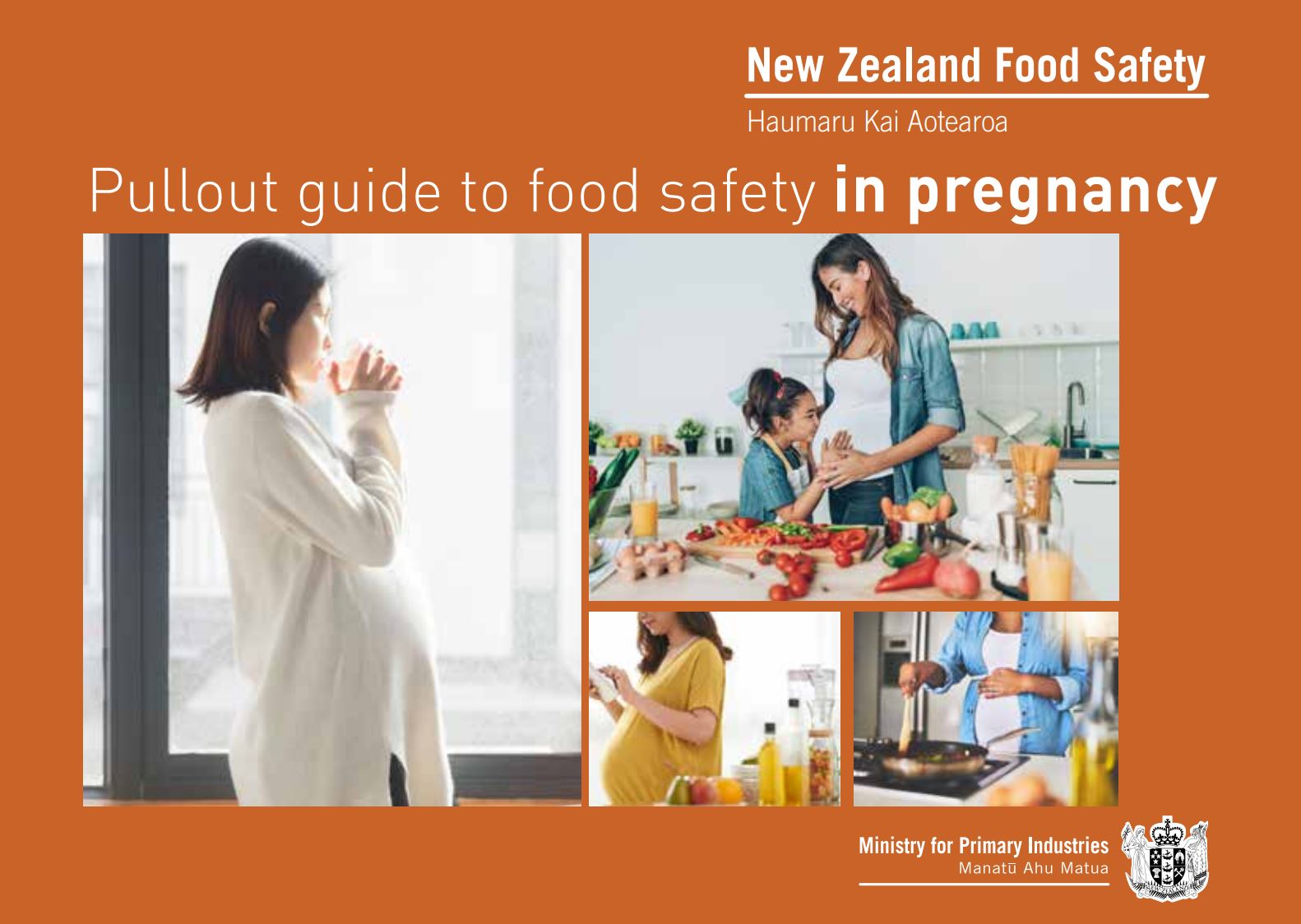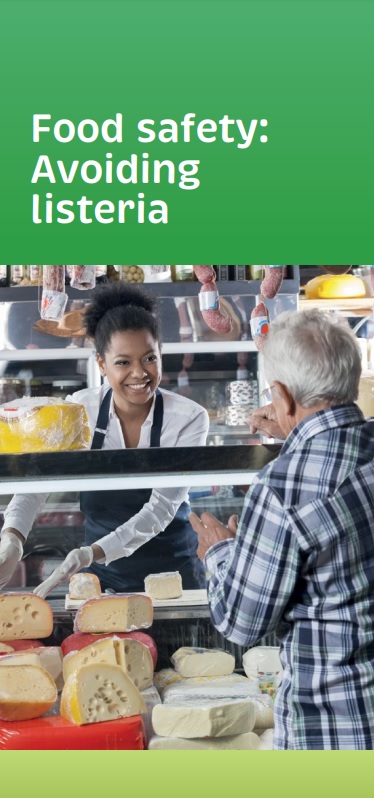Listeria and pregnancy
Key points about listeria and pregnancy
- Listeria infection is caused by eating foods contaminated by Listeria monocytogenes bacteria. Foods most likely to be contaminated include ready-to-eat refrigerated meals and processed foods, eg, cooked and chilled meals, soft cheeses, cold meats, pâtés and smoked fish.
- Listeria infection can be particularly dangerous for pregnant women. It can cause miscarriage, premature labour or stillbirth, and can also cause infection in your baby.
- It's impossible to tell from the look, taste or smell whether food is contaminated with listeria.
- The best way to avoid listeria infection is to avoid high-risk foods and always follow food safety guidelines.
- If you think you have eaten food contaminated with listeria or if you have any of the symptoms of listeria infection, contact your doctor or midwife right away.

Listeria infection is caused by eating food contaminated with bacteria called Listeria monocytogenes. It is one of the most serious types of food poisoning.
Listeria bacteria are widely found in dust, soil, water, plants, sewage and animal droppings. Due to contamination, they have also been found in a variety of foods, including raw meat, raw vegetables and some processed foods.
Listeria infection is commonly transmitted to humans by eating contaminated food. The bug has been found in a variety of foods at all stages of preparation, from raw to well-cooked leftovers. Listeria can also grow on food stored in a fridge.
The symptoms may be general, such as fever, headache, tiredness, aches and pains, which may be accompanied by runny poos (diarrhoea), feeling sick (nausea) and stomach cramps.
On average, symptoms appear after about 3 weeks but may appear as late as 2 months after you have eaten something with listeria. Many pregnant women do not have any symptoms. Even if you do not feel sick, you can pass the infection to your baby.
Pregnant women are 10–20 times more likely to get listeria infection than the general population. Even a mild infection in a pregnant woman can cause miscarriage, stillbirth, premature birth or a baby who is very ill when born.
Listeria can be passed from mother to baby during pregnancy or birth. Newborn babies infected with listeria may show signs of infection at birth or during the first few days of life.
Infection in newborn babies can be very severe and can include lung infection (pneumonia) and meningitis. Infected babies may have severe difficulty with breathing and feeding.
If you think you have eaten food contaminated with listeria or if you have any of the symptoms of listeria infection, contact your doctor or midwife right away. Remember that it can take 2 months for symptoms to appear.
Your doctor may ask for a blood test to see whether you have listeria infection. You may need to take antibiotics to treat the infection and prevent your baby from becoming infected.
Foods that are contaminated with listeria don't look, smell or taste off. Cooking and pasteurisation are the only ways to kill listeria. Listeria will continue to grow in foods in the fridge.
The best way to avoid listeria infection is to avoid high-risk foods and always handle food safely.
High-risk foods that should be avoided
While food safety procedures aim to prevent listeria getting into the foods we eat, there are some foods that are more likely to be contaminated and pregnant women should not eat them.
Avoid all raw and under-cooked seafood, eggs, meat, and poultry while you are pregnant. Do not eat sushi made with raw fish (cooked sushi is safe). Cooking and pasteurisation are the only ways to kill listeria.
| High-risk foods that should be avoided: |
* Note that these foods are safe to eat if heated thoroughly to steaming hot (ie, above 72°C). |
Foods that are safe to eat
- Most foods that have been thoroughly cooked (until piping hot) and eaten straight away.
- Vegetables and fruit that have been well washed.
- All tinned foods.
- Breads and cereals (without added mock creams or custards).
- Dried food (fruit, nuts, lentils, beans etc).
- Pasteurised milk and milk products, such as yoghurt, cheese etc.
Safe ways to handle food at home
Safe food handling and safe storage of food is important for everyone.
- Wash your hands before preparing food and between handling raw food and ready-to-eat foods.
- Wash raw fruit and vegetables well before eating.
- Cook all foods of animal origin, including eggs, thoroughly.
- Cook leftover foods or ready-to-eat foods, such as hot dogs, until steaming hot before eating.
- Keep uncooked meats separate from vegetables, cooked foods and ready-to-eat foods.
- Uncooked meats should also be well wrapped or covered.
- Wash hands, knives and cutting boards thoroughly with hot water and soap after handling uncooked foods.
- Take special care when using a microwave to heat food all the way through until it is piping hot.
The NZ Government Ministry of Primary Industries (MPI) in Food Safety (previously called the NZFSA) has a booklet Food safety in pregnancy [PDF, 619 KB] and other useful resources available to download from the Food safety website(external link)
You can also talk to your doctor or midwife and contact the Public Health Unit at your local Community Health Service.
Resources
Safe and healthy eating in pregnancy(external link) HealthEd, NZ, 2023
Pullout guide to food safety in pregnancy(external link) Ministry for Primary Industries, NZ, updated Sept 2020
Food safety – avoiding listeria(external link) Health Ed, NZ, 2017
References
- Listeria and pregnancy(external link) The American College of Obstetricians and Gynecologists, US
- Listeria (Listeriosis)(external link) Centres for Disease Control, US, 2019
- Listeriosis(external link) World Health Organization
Brochures

Safe and healthy eating in pregnancy
HealthEd, NZ, 2023

Ministry for Primary Industries, NZ, updated Sept 2020

Health Ed, NZ, 2017
Credits: Healthify editorial team. Healthify is brought to you by Health Navigator Charitable Trust.
Reviewed by: Dr Li-Wern Yim, travel doctor
Last reviewed:
Page last updated:





